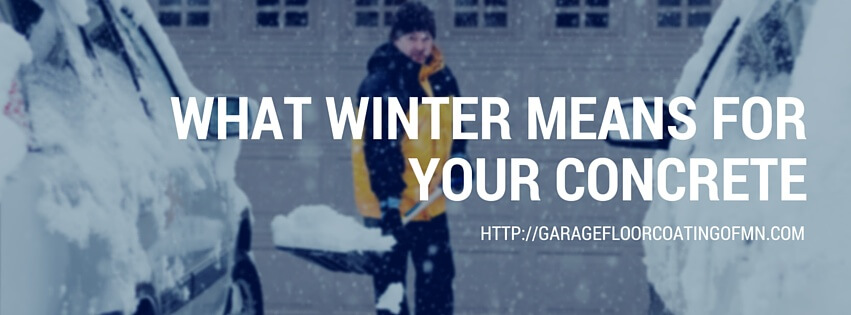What Winter Means for Your Concrete

As seasoned veterans of Midwest winters, we know what it takes to handle the cold, wind, snow, and ice. Some of us even have it worked out to a science – how many minutes you should run the car before driving it, the exact amount of time you can spend outside before frostbite sets in, or even the best walking route to avoid the biggest gusts of wind. However, concrete is unable to adjust how it responds to the cold (well, unless it has a little help).
As a construction material, concrete possesses the following properties:
- High compressive strength, meaning it can handle a lot of stress/weight on a small amount of space (compressed force)
- Low tensile strength, which means a very small amount of stress will cause concrete to fail or break (tension force)
- Elasticity is consistent with low stress, quickly decreases with more stress
- Low coefficient of thermal expansion, which describes how the size of an object changes as temperatures change and fluctuate (concrete inherently shrinks over time and will never be as “large” as it was when first installed)
With concrete’s physical properties in mind, we need to think of concrete in the context of winter and its elements. Concrete is a porous material, and as water freezes and thaws on and in the concrete, it puts extra stress on the atoms and bonds that make up the material. This effect is further exasperated when salt and de-icing chemicals are added to the equation. Salt attracts additional water, which then increases the amount of water that gathers in the pores of the concrete. This intensifies the deterioration of the concrete – at a molecular level. The acidic properties of salt also attack the bonds hold concrete together.
Long story short: winter is not kind to concrete.
So how can you help your concrete weather the winter weather? First of all, when your concrete is installed, make sure it is reinforced with either steel rods or mesh. Steel has a higher tensile strength than concrete and will help concrete handle tension better than concrete alone. You will also want to coat your concrete with a high quality coating that will repel water and other chemicals from attacking your concrete and will expand and contract as your concrete adjusts to current weather conditions.